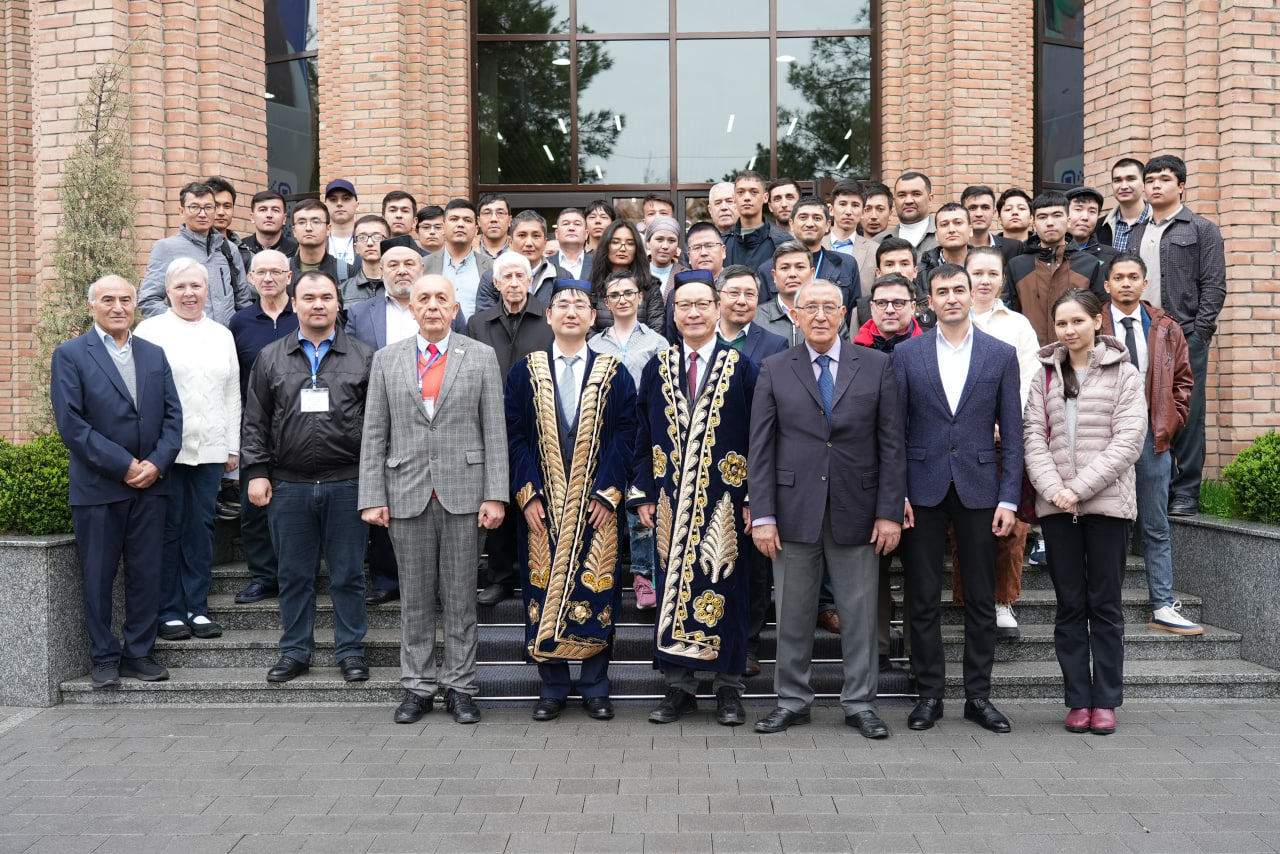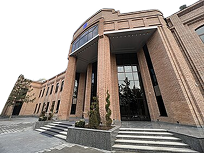New Uzbekistan University recently had the honor of hosting a public lecture delivered by the esteemed scholar Toshitaka Kajino. The event attracted a diverse audience, including students, participants of the International Conference on Theoretical Physics and Astrophysics (ICTPA-2025), and distinguished academics such as Academicians Bobomurod Ahmedov and Kodir Gofurov.
Right after the lecture, a significant milestone was achieved: Professor Wang, from the City University of Hong Kong, signed the MOU between the Physics Society of Hong Kong and the Physics Society of Uzbekistan formalizing their commitment to joint academic cooperation. This agreement marks a step forward in fostering international academic collaboration. In a gesture of cultural appreciation, Academician Akhmedov presented both Professor Kajino and Professor Wang with traditional chapan and doppe garments.
About the Speaker
Professor Toshitaka Kajino is a distinguished Fellow of the American Physical Society and a prominent figure in the field of nuclear astrophysics. He is recognized as a One Thousand Talents Plan Foreign Expert in China and serves on the Board of the Institute for Nuclear Astrophysics. Currently, he holds the position of University Distinguished Professor at Beihang University, where he has been since 2017. His leadership extends to directing the International Research Center for Big Bang Cosmology and Element Genesis and serving as Chief Scientist at the Peng Huanwu Collaborative Center for Research and Education. Moreover, he is a Special Guest Professor at both The University of Tokyo and the National Astronomical Observatory of Japan.
Professor Kajino is internationally acclaimed for his contributions to cosmology and nuclear astrophysics. He has previously held professorships at The University of Tokyo, Tokyo Metropolitan University, and the National Astronomical Observatory of Japan until 2021. Among his notable achievements is the precise theoretical prediction of particle and nuclear reaction processes associated with solar neutrinos and Big Bang nucleosynthesis. Remarkably, he proposed an inhomogeneous Big Bang model that included baryon fluctuations three years prior to the discovery of Cosmic Microwave Background fluctuations in 1992.
His extensive research encompasses the origin and evolution of space-time, primordial black holes, and the formation of atomic nuclei. Recently, he has discovered that supernovae and collapsars play a dominant role in the production and enrichment of heavy atomic nuclei throughout cosmic history, surpassing binary neutron-star mergers.
Professor Kajino's lecture highlighted his groundbreaking research sending important messages to the students and young researchers to be creative!
The lecture at the New Uzbekistan University was an outstanding example of the university's commitment to promoting academic excellence and global partnerships in scientific research.
 O'zbekcha
O'zbekcha
 Русский
Русский
 English
English



